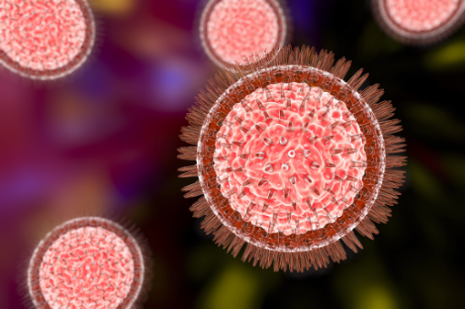On 01 February 2016, the World Health Organization (WHO) declared a Public Health Emergency of International Concern to initiate a coordinated international response to minimize the threat in affected countries and reduce the risk of international spread of the Zika virus.
The WHO found no public health justification for restrictions on travel or trade to prevent the spread of Zika virus.
Here is the latest information on the Zika virus from the Global Rescue Medical Operations team.
How does someone become infected with the Zika virus?
Zika virus disease is an acute viral illness of humans transmitted through the bite of an infected Aedes-species mosquito that has previously fed on a person infected with the Zika virus. There is also emerging evidence to suggest maternal – fetal transmission also may occur near the time of delivery, or late in pregnancy.
There are also isolated cases of transmission through sexual contact or blood transfusion. The virus remains in the blood for about a week. How long the virus remains in semen is currently not known.
What are the symptoms of the Zika virus?
Symptoms include sudden fever with rash, joint and body pain, headache and conjunctivitis. Symptoms are usually mild and last from several days to a week. Approximately 1 in 5 people infected with the Zika virus will develop symptoms.
What countries has Zika spread to?
According to the Centers for Disease Control and Prevention (CDC), the following have active Zika virus transmission:
Americas: Barbados, Bolivia, Brazil, Colombia, Puerto Rico, Costa Rica, Curacao, Dominican Republic, Ecuador, El Salvador, French Guiana, Guadeloupe, Guatemala, Guyana, Haiti, Honduras, Martinique, Mexico, Nicaragua, Panama, Paraguay, Saint Martin, Suriname, USVI, Venezuela.
Oceania/Pacific Islands: American Samoa, Samoa
Africa: Cape Verde
What is the risk for pregnant women?
Women who are infected with the Zika virus who are pregnant, or become pregnant, are at an increased risk of birth defects — including microcephaly, an abnormal smallness of a newborn’s head associated with incomplete neurological development. Emerging evidence suggests that maternal-fetal transmission also may occur near the time of delivery, or late in pregnancy.
What advice is there for pregnant women regarding Zika?
The U.S. Centers for Disease Control and Prevention has published guidelines regarding pregnancy and Zika here. The CDC recommends special precautions for pregnant women and women trying to become pregnant:
–Pregnant women in any trimester should consider postponing travel to the areas where Zika virus transmission is ongoing. Pregnant women who do travel to one of these areas should talk to their doctor or other healthcare provider first and strictly follow steps to avoid mosquito bites during the trip.
–Women trying to become pregnant or who are thinking about becoming pregnant should consult with their healthcare provider before traveling to these areas and strictly follow steps to prevent mosquito bites during the trip.
How can I protect myself against the Zika virus?
There is no vaccine to prevent Zika virus disease, and no medication available to treat Zika virus infection. Prevention of bites by infected Aedes-mosquitos is the only effective means of avoiding infection while traveling in regions where the Zika virus is present.
Prevention techniques may include:
–Using insect repellents containing either DEET, picaridin, IR3535, or certain oil of lemon-eucalyptus or para-menthane-diol products.
— Application of sunscreen first and then insect repellent. (Always follow the label instructions when using insect repellent or sunscreen.)
–Treating clothing with permethrin or purchase permethrin-treated clothing.
–When weather permits, wear long-sleeved shirts and long pants.
–Use air-conditioning, and window/door screens to keep mosquitoes outside. If you are not able to protect yourself from mosquitoes inside your local accommodations, sleep under a mosquito bed net.
— Reduce the number of mosquitoes inside and outside by emptying standing water from containers, such as flowerpots or buckets.
While the risk of Zika transmission through sex is low, the use of condoms should be considered as a precaution.
According to Public Health England, it is recommended that men should wear condoms for 28 days after return from a Zika transmission area if they experience no symptoms of Zika virus. Condoms are recommended for six months “following recovery if a clinical illness compatible with Zika virus infection or laboratory confirmed Zika virus infection” has been reported.
What are the origins of the Zika virus?
The Zika virus was discovered in 1947 in Zika Forest, Uganda. The virus was found to be present in Uganda’s Rhesus monkey population and the Aedes africanus mosquito. The first humans infected with Zika virus disease were reported in the early 1950s in Nigeria, Uganda, and Tanzania. The virus remained endemic to parts of Africa and Asia, until an outbreak on Yap Island and French Polynesia in the South Pacific in 2007and 2013 respectively. Other Pacific Islands including New Caledonia, Cook Islands, and Easter Island have reported outbreaks of ZVD.
In October 2015 the U.S. Centers for Disease Control and Prevention (CDC) published reports from the Federal University of Bahia, Salvador, Bahia, Brazil which confirmed cases of Zika virus disease in Camaçari, Bahia, Brazil. Further reports from Brazil in May 2015 reported that pregnant women who became infected with Zika virus disease had an increased risk of birth defects such as microcephaly.
Oahu, Hawaii, USA reported the first case of ZVD-related microcephaly in the United States. The infant’s mother had lived in Brazil during her pregnancy and the infant was likely infected within the womb, as hypothesized by both Hawaiian Department of Health officials and the U.S. Centers for Disease Control and Prevention.
Download the Global Rescue mobile app to access detailed country-specific Destination Reports developed by our worldwide team of intelligence analysts.
Questions about the Zika virus? Contact Global Rescue at 617-459-4200 or memberservices@globalrescue.com.










